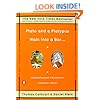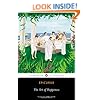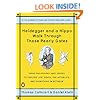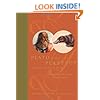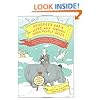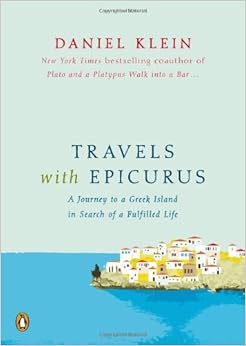
Travels with Epicurus
and over one million other books are available for Amazon Kindle. Learn more


Flip to back
Flip to front

Travels with Epicurus: A Journey to a Greek Island in Search of a Fulfilled Life Hardcover – October 30, 2012

$14.59
FREE Shipping on orders over $35.
Only 9 left in stock (more on the way).
Ships from and sold by Amazon.com.
Gift-wrap available.
NO_CONTENT_IN_FEATURE
Start reading Travels with Epicurus on your Kindle in under a minute.
Don't have a Kindle? Get your Kindle here, or download a FREE Kindle Reading App.
Don't have a Kindle? Get your Kindle here, or download a FREE Kindle Reading App.
Best Books of the Month
Want to know our Editors' picks for the best books of the month? Browse Best Books of the Month, featuring our favorite new books in more than a dozen categories.
Want to know our Editors' picks for the best books of the month? Browse Best Books of the Month, featuring our favorite new books in more than a dozen categories.
Product Details
Would you like to update product info or give feedback on images?.
|
Editorial Reviews
From Publishers Weekly
Following a trip to his dentist, 73-year-old Klein considers his options after being advised that he needs tooth implants or a denture. Klein (Plato and a Platypus Walk into a Bar) opts for a sojourn to the Greek island of Hydra. Accompanied by a suitcase crammed with philosophy books, Klein contemplates the Greek philosopher Epicurus' pivotal question. He fundamentally wanted to know how to make the most of his one life, writes Klein. Eschewing the forever young treadmill many American's embrace, Klein explores a different path, examining the relaxed Greek lifestyle surrounding him. He laments what's lost in the frantic rush to stay youthful: And we have no time left for a calm and reflective appreciation of our twilight years, no deliciously long afternoons sitting with friends or listening to music or musing about the story of our lives. The author ruminates on the benefits of freeing ourselves from the prison of everyday affairs; the pleasures of companionship in old age; battling boredom; the difference between sexual urges and sexual nostalgia; and the value of facing death blissfully. Along the way, Klein touches on the ideas of Bertrand Russell, Erik Erikson, Aristotle, and William James. Klein's narrative is a delightful and spirited conversation, offering up the ingredients inherent to the art of living well in old age. Agent: Julia Lord. (Nov.)
From Booklist
Klein (Plato and a Platypus Walk into a Bar, 2008, among others) returned to the Greek island of Hydra at age 73. His return had a new and specific purpose: “I want to figure out the most satisfying way to live this stage of my life.” Prior experience with the island led to conclude that the “old folks of Hydra have always struck me as uncommonly content with their stage in life.” But just observing and absorbing what the people had to show and tell him didn’t seem like quite enough. To augment his on-site learning, he took with him a stack of philosophy books by ancient Greeks as well as some modern writers. It’s an interesting formula, resulting in a lovely little book with both heart and punch, an argument against the “forever young” syndrome so prevalent in contemporary American society. His contemplative time spent observing the old men of Hydra while reading his small library of the great thinkers led him to an “evolving philosophy of a good and authentic old age.” --Brad Hooper
More About the Author
Daniel Martin Klein (born 1939 in Wilmington, Delaware) is an American writer of fiction, non-fiction, and humor. His most notable work is Plato and a Platypus Walk Into a Bar co-written with Thomas Cathcart. It was a New York Times bestseller and is translated into 26 languages.
Klein went to school at Harvard College where he received a B.A. in philosophy. After a brief career in television comedy, he began writing books, ranging from thrillers and mysteries to humorous books about philosophy. He lives in Great Barrington, Massachusetts, and is married to Freke Vuijst, American correspondent for the Dutch newsweekly, 'Vrij Nederland'.
Klein went to school at Harvard College where he received a B.A. in philosophy. After a brief career in television comedy, he began writing books, ranging from thrillers and mysteries to humorous books about philosophy. He lives in Great Barrington, Massachusetts, and is married to Freke Vuijst, American correspondent for the Dutch newsweekly, 'Vrij Nederland'.
Customer Reviews
Most Helpful Customer Reviews
43 of 45 people found the following review helpful
By
Hester Velmans
on November 24, 2012
Format: Hardcover
Comment
Sending feedback...
Daniel Klein is a modest writer; he feels obliged to consult and pay tribute to the philosophers, ancient and modern, who have had wise things to say about the meaning of life, especially the question of how to deal with growing old. But the real charm of this book lies in following Klein as he wanders around his idyllic Greek island, observing how the contented locals there deal with aging, and arriving at his own wry but upbeat answers to the age-old questions.
Not only is the glass half full, but it is filled with something simple, heartwarming and tasty. Epicurus would be proud.
Not only is the glass half full, but it is filled with something simple, heartwarming and tasty. Epicurus would be proud.
Thank you for your feedback.
If this review is inappropriate, please let us know.
Sorry, we failed to record your vote. Please try again
19 of 19 people found the following review helpful
By
francesca turchiano
on December 10, 2012
Format: Hardcover
Verified Purchase
Comment
Sending feedback...
So, my husband of forty years and I read to each other each morning before breakfast, often poetry. We began to travel with this poet of sorts last week. He makes us think about stuff worth thinking about while simultaneously enchantIng us with his language, insight, brevity and clarity. A total treat, and therapeutic to boot!
Thank you for your feedback.
If this review is inappropriate, please let us know.
Sorry, we failed to record your vote. Please try again
24 of 26 people found the following review helpful
By
Annette Hollander
on November 14, 2012
Format: Hardcover
Verified Purchase
Comment
Sending feedback...
Without telling you WHAT to think, Dan Klein suggests HOW we can think about growing older in any number of interesting ways. Reading this book is like conversing with a friend who knows some of the best quotes from philosophers - from ancient Greece to today- to help focus the conversation. We join the author on his Greek Island- vividly depicted- as he clarifies thoughts that have crossed the mind of anyone over 65 who lives thoughtfully, and adds some new ones.
This book was very satisfying to read and savor, a few chapters at a time. It is emphatically NOT about how to stay forever young. It does point the way to finding more delight and meaning as we move toward the end of our lives.
This book was very satisfying to read and savor, a few chapters at a time. It is emphatically NOT about how to stay forever young. It does point the way to finding more delight and meaning as we move toward the end of our lives.
Thank you for your feedback.
If this review is inappropriate, please let us know.
Sorry, we failed to record your vote. Please try again
31 of 36 people found the following review helpful
By
David Schauweker
on December 17, 2012
Format: Hardcover
1 Comment
Sending feedback...
To my mind the compelling aspect of this short book is its depiction of how the more relaxed Greek lifestyle, particularly in the rural areas, seems to naturally prepare one for a simple, leisurely, sociable and enjoyable old age, a life in many ways similar to what the philosopher Epicurus recommended. Klein's Greek friend Tasso, a retired judge, seems to exemplify this lifestyle.
For Klein, unlike Tasso, apparently neither his culture nor his personal interest in philosophy have prepared him to assume the role of an old man naturally and comfortably; therefore, he has to think about it. Although he talks quite a bit about Epicurus' "laid-back" philosophy, his interest in Existentialism seems to run deeper. According to Klein, Existentialism seems to emphasize constantly making conscious choices about how to live, which sounds nerve-wracking, to my mind.
But Klein never seems to come to a firm conclusion or direction in his explorations. When he returns home, he finds his wife has been writing a magazine piece about seniors who have returned to work, many of whom seem to enjoy it. Klein then starts wondering if a compromise between work and leisure might be possible in old age.
Other musings on old age are equally inconclusive. He bemoans the "forever young" health-nut ethos common in the U.S., but seems kind of guilty about some of his unhealthy habits such as smoking.
Another example is his intensified interest in religion in old age. The question of the meaning or point of it all has become much more urgent. Klein looks at Hinduism and Buddhist mindfulness very briefly, but again cannot come to a conclusion.
In the epilogue, I think he confuses Buddhist mindfulness with thinking about options and choices.Read more ›
For Klein, unlike Tasso, apparently neither his culture nor his personal interest in philosophy have prepared him to assume the role of an old man naturally and comfortably; therefore, he has to think about it. Although he talks quite a bit about Epicurus' "laid-back" philosophy, his interest in Existentialism seems to run deeper. According to Klein, Existentialism seems to emphasize constantly making conscious choices about how to live, which sounds nerve-wracking, to my mind.
But Klein never seems to come to a firm conclusion or direction in his explorations. When he returns home, he finds his wife has been writing a magazine piece about seniors who have returned to work, many of whom seem to enjoy it. Klein then starts wondering if a compromise between work and leisure might be possible in old age.
Other musings on old age are equally inconclusive. He bemoans the "forever young" health-nut ethos common in the U.S., but seems kind of guilty about some of his unhealthy habits such as smoking.
Another example is his intensified interest in religion in old age. The question of the meaning or point of it all has become much more urgent. Klein looks at Hinduism and Buddhist mindfulness very briefly, but again cannot come to a conclusion.
In the epilogue, I think he confuses Buddhist mindfulness with thinking about options and choices.Read more ›
Thank you for your feedback.
If this review is inappropriate, please let us know.
Sorry, we failed to record your vote. Please try again
12 of 12 people found the following review helpful
By
Michael Graves
on November 23, 2012
Format: Hardcover
Verified Purchase
Comment
Sending feedback...
Don't wait until you're old to read this book - unless you already are. Journey to Hydra with Epicurus and Daniel Klein for a taste of life's simple pleasures and discover secrets to enjoying the rest of your life in the bargain. You will relish the adventure so much you'll want to turn back to the beginning of the book and take the voyage again, as I did. Bon voyage.
Thank you for your feedback.
If this review is inappropriate, please let us know.
Sorry, we failed to record your vote. Please try again
26 of 31 people found the following review helpful
By
Dad of Divas
TOP 500 REVIEWER on November 1, 2012
Format: Hardcover
1 Comment
Sending feedback...
This was a great book that had so much humor within it and I have to say that it was a book that kept my attention from beginning to end! On top of this humor and wit though is a message that makes you think about your own life and how you are currently living and how you want to live in the future. I truly enjoyed the writing of Daniel Klein, and he did a great job at weaving a colorful tale with a great message within it. He also paints a vivid picture for all readers to enjoy! This is the type of book that you will not want to put down (at least I didn't) and you will come out in the end with a smile on your face and feeling uplifted!
Thank you for your feedback.
If this review is inappropriate, please let us know.
Sorry, we failed to record your vote. Please try again
7 of 7 people found the following review helpful
By
Tom Field
on July 6, 2013
Format: Hardcover
Comment
Sending feedback...
In a nutshell, Daniel Klein tells us Greek philosopher Epicurus believes "the happiest life is free from self-imposed demands of commerce and politics." Appreciate the here and now, celebrate beauty, strive for nothing, enjoy simple pleasures, have companions, bathe yourself in happiness--guilt free.
If you're inspired by business success books, motivational seminars, expert advice on professional and personal empowerment, Klein's Travels with Epicurus (Penguin Book; 2013) will leave you scratching your head. Heck, if you harbor any admiration for the so-called Protestant work ethic, the book could assault your sense of a proper worldview. Where is the productivity, responsibility, obligation, service and contribution to society, community, your fellow man? However, I hear Klein's voice differently. If his notion of good living irritates you to that extreme, you may be wound a little too tightly. Fulfillment requires balance (a point made in the book), and I'm convinced our "travel guide's" observations prove you can't really sustain the Epicurean model for an entire life. In fact, the man couldn't even be on this Greek Isle, relaxing and waxing philosophic had he not worked and "earned" the spot, at least to some degree.
In essence, the irony is, Travels is for people who have earned it (though I'm pretty certain Klein would say everybody deserves it). I think it's probably about the most beautifully written story for the retired soul who sees little value in working yourself to death until the day you die.
(NOTE: I rarely give 5 stars - this book could be the most perfectly written book I'll experience this year.)
-- Tom Field
If you're inspired by business success books, motivational seminars, expert advice on professional and personal empowerment, Klein's Travels with Epicurus (Penguin Book; 2013) will leave you scratching your head. Heck, if you harbor any admiration for the so-called Protestant work ethic, the book could assault your sense of a proper worldview. Where is the productivity, responsibility, obligation, service and contribution to society, community, your fellow man? However, I hear Klein's voice differently. If his notion of good living irritates you to that extreme, you may be wound a little too tightly. Fulfillment requires balance (a point made in the book), and I'm convinced our "travel guide's" observations prove you can't really sustain the Epicurean model for an entire life. In fact, the man couldn't even be on this Greek Isle, relaxing and waxing philosophic had he not worked and "earned" the spot, at least to some degree.
In essence, the irony is, Travels is for people who have earned it (though I'm pretty certain Klein would say everybody deserves it). I think it's probably about the most beautifully written story for the retired soul who sees little value in working yourself to death until the day you die.
(NOTE: I rarely give 5 stars - this book could be the most perfectly written book I'll experience this year.)
-- Tom Field
Thank you for your feedback.
If this review is inappropriate, please let us know.
Sorry, we failed to record your vote. Please try again
